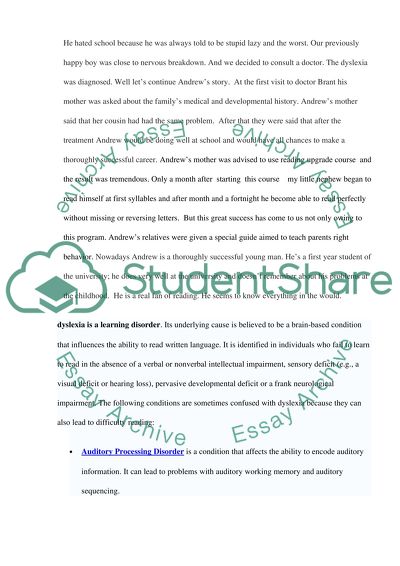Cite this document
(Dyslexia as a Learning Disorder Essay Example | Topics and Well Written Essays - 2000 words, n.d.)
Dyslexia as a Learning Disorder Essay Example | Topics and Well Written Essays - 2000 words. Retrieved from https://studentshare.org/psychology/1519077-dyslexia-as-a-learning-disorder
Dyslexia as a Learning Disorder Essay Example | Topics and Well Written Essays - 2000 words. Retrieved from https://studentshare.org/psychology/1519077-dyslexia-as-a-learning-disorder
(Dyslexia As a Learning Disorder Essay Example | Topics and Well Written Essays - 2000 Words)
Dyslexia As a Learning Disorder Essay Example | Topics and Well Written Essays - 2000 Words. https://studentshare.org/psychology/1519077-dyslexia-as-a-learning-disorder.
Dyslexia As a Learning Disorder Essay Example | Topics and Well Written Essays - 2000 Words. https://studentshare.org/psychology/1519077-dyslexia-as-a-learning-disorder.
“Dyslexia As a Learning Disorder Essay Example | Topics and Well Written Essays - 2000 Words”, n.d. https://studentshare.org/psychology/1519077-dyslexia-as-a-learning-disorder.


